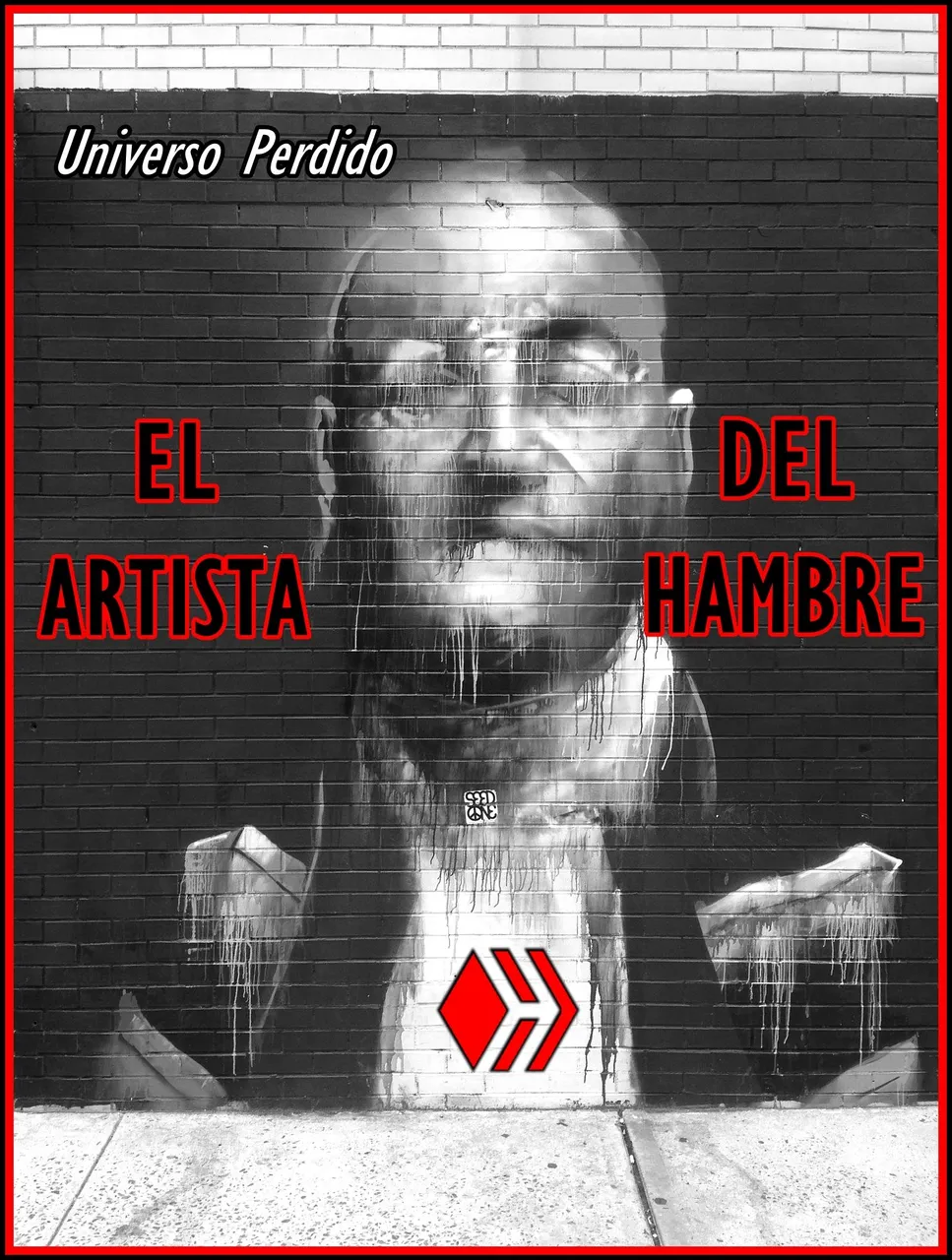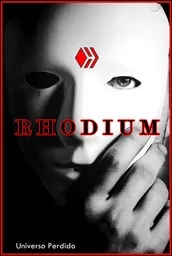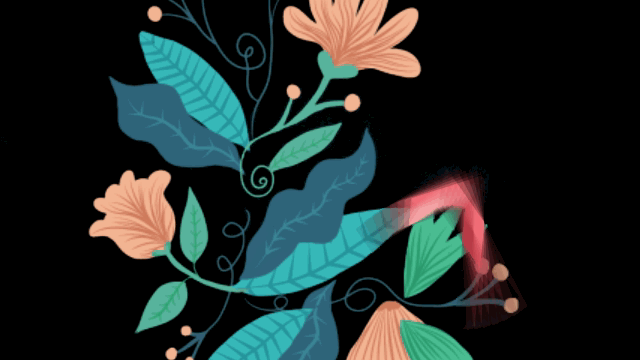
«Es mejor haber amado y haber perdido que jamás haber perdido.»
«It is better to have loved and lost than never to have lost at all.»
— Samuel Butler

E S P A Ñ O L
𝔼𝕃 𝔸ℝ𝕋𝕀𝕊𝕋𝔸 𝔻𝔼𝕃 ℍ𝔸𝕄𝔹ℝ𝔼
Hace mucho tiempo, cuando era joven y los espectáculos remotos ofrecían un entretenimiento perturbador al mundo, yo me doblegaba ante las fauces de un mundo decadente que exhibía la parte más oscura de la humanidad. Solía colarme con mi madre entre muchedumbres asombradas, agitadas y envueltas en un remolino de turbación, para encontrarnos con el único entretenimiento que ha captado nuestras miradas.
Recuerdo escuchar a la gente murmurar y señalar como si de un engendro se tratara. Había cercados que resolvían mantener a la multitud alejada, conteniendo un enjaulado provisto de hojas, ramas y sobre estos, un hombre tan delgado que hoy en día atraería la preocupación más pertinente del mundo. El ayunador le decían, y su aspecto provocaba reflejos vomitivos entre sus espectadores, pero existía entre tanta repulsión mucho morbo e impresión, pues las personas respondían los ademanes cordiales del ayunador mientras este se quedaba inerte y sonriente viendo a todo su público.
Yo no entendía en aquel entonces, puesto que era muy pequeño y mi madre siempre me protegió de vislumbrar la decadencia del mundo, que en ese entonces se manifestaba para alimentar el deseo de ansiedad que las personas transmitían hacia aquel hombre. Decían que el ayunador tenía dos semanas sin comer; su rostro pronunciado con ojos hundidos revelaba esta verdad con poderío. Recuerdo su mentón afilado como un cuerno de marfil, su piel descubierta de aspecto áspero y su estructura ósea remarcada para todos sus observadores. A pesar del padecimiento que cargaba, el ayunador siempre sonreía a su público; como un gran artista caminando a pasos agigantados sobre un escenario de oro y diamantes. Alimentado solo de las ovaciones que sus admiradores expedían desde el fondo de sus entrañas.
Para mi madre, era demasiado observar al ayunador por más de cinco segundos, pues se notaba en su rostro la repulsión que le causaba su aspecto, pero en mi caso fue diferente. Divisar el cuerpo excesivamente delgado y famélico del ayunador despertaba mis sentidos más analíticos. No lo veía como una cosa decadente, sino como un ser extraordinario. No me fijaba en sus huesudas extremidades y nudosos dedos, sino en cómo se exponía ante la vida con orgullo y osadía pretendiendo ser una de las maravillas del mundo. A pesar de su mustia situación, el ayunador era todo un profesional del entretenimiento, pues se notaba en su consumido cuerpo, ausencia de nutrientes que daban fuerzas a sus pies para que se levantara.
Decían que el ayunador desarrolló una repugnancia a la comida, que el solo hecho de olfatearla le provocaba vomitar. Y más impresionante era que una persona se desprendiera de una necesidad tan básica e importante, que la padeciera como una enfermedad irregular dentro del organismo. Era como si el ayunador en sí, poco a poco en sus facultades en aquel entonces mecánicas de resistir el hambre, se estuviera desglosando de su humanismo o, expresándolo de una mejor manera, desasiéndose de su peculiaridad de ser vivo.
Solo era un niño pero lo recuerdo con cada detalle; el espectáculo de ese día, cuando fueron llamados otros artistas del país para presenciar el acto del ayunador. Me escabullía entre las personas para buscar los mejores puestos, a expensas de la preocupación de mi madre. Recuerdo que ella me sujetaba el brazo con fuerza para no perderme de vista, luego me llevaba a un lugar con mejor posición para ver al ayunador. Un par de hombres conversaban en voz alta al lado de nosotros, recuerdo que decían que estaban ante la cosa más impresionante que hayan visto en sus vidas, y que era cuestión de tiempo, que el ayunador moriría.
Aquellas palabras, aunque en el fondo de mi corazón sabía que eran ciertas, causaron en mí una amarga decepción, y me hicieron ver; de una manera tan cruda, que todo lo que había a mi alrededor estaba mal, y que estábamos en presencia de una vela que se extinguía. El morbo de las personas se caracterizaba por presenciar la autoflagelación de otros, algo que el ayunador siempre ofrecía a lo demás, hasta que, este fetiche tan aberrante, se disolviera a causa del aburrimiento. Todos los espectadores que admiraron al artista del hambre desaparecieron, incluso yo; que ni siquiera lo observaba con lástima, fui apartado de la vista de quien tanto hablaban en aquella feria.
Mi madre y yo no volvimos a aquel lugar; y luego, toda la admiración, asombro y repulsión que había provocado el ayunador a las personas había desaparecido, como un rumor que dejó de repercutir entre las palabras hasta finalmente convertirse en nada. No supe más del ayunador y pensé en los comentarios de esos hombres ese día. Me quedé pensativo frente a la ventana de mi sala, imaginando los múltiples finales que el ayunador hubiera tenido en su vida artística; pero, solo pude imaginar uno. Años después supe porque el ayunador había escogido ese estilo de vida, y era simplemente porque la comida le causaba repulsión. Esta ironía repercutió en mí varios años después, en como algo tan simple pudo crear una obra magnánima de la decadencia.
FIN
E N G L I S H
𝕋ℍ𝔼 ℍ𝕌ℕ𝔾𝔼ℝ 𝔸ℝ𝕋𝕀𝕊𝕋
Long ago, when I was young and remote spectacles offered disturbing entertainment to the world, I bowed to the maw of a decadent world that exhibited the darkest part of humanity. I used to sneak with my mother through astonished crowds, agitated and enveloped in a whirlwind of turmoil, to find the only entertainment that has ever captured our gaze.
I remember hearing people murmuring and pointing as if at a freak. There were fences that resolved to keep the crowds away, containing a caged cage with leaves, branches and on top of these, a man so thin that today he would attract the most pertinent concern in the world. The fasting man they called him, and his appearance provoked vomiting reflexes among his spectators, but among so much repulsion there was much morbidity and impression, for the people responded to the cordial gestures of the fasting man while he stood inert and smiling watching all his audience.
I did not understand at that time, since I was very small and my mother always protected me from glimpsing the decadence of the world, which at that time was manifested to feed the desire of anxiety that people transmitted towards that man. They said that the fasting man had two weeks without eating; his pronounced face with sunken eyes revealed this truth with power. I remember his chin sharp as an ivory horn, his rough-looking bare skin, and his bone structure remarked to all his observers. In spite of the ailment he carried, the fasting man always smiled at his audience; like a great artist walking with giant strides on a stage of gold and diamonds. Fed only by the ovations that his admirers sent from the depths of his guts.
For my mother, it was too much to watch the fasting man for more than five seconds, as the repulsion caused by his appearance could be seen on her face, but in my case it was different. To glimpse the excessively thin and starving body of the fasting man awakened my more analytical senses. I did not see him as a decadent thing, but as an extraordinary being. I looked not at his bony limbs and gnarled fingers, but at how he stood proudly and boldly before life pretending to be one of the wonders of the world. In spite of his wilted situation, the fasting man was a professional entertainer, for one could see in his wasted body the absence of nutrients that gave strength to his feet to stand up.
It was said that the fasting person developed a repugnance to food, that the mere fact of sniffing it caused him to vomit. And even more impressive was that a person would detach himself from such a basic and important need, that he would suffer from it as an irregular disease within the organism. It was as if the fasting person himself, little by little in his then mechanical faculties to resist hunger, was breaking down from his humanism or, expressing it in a better way, detaching himself from his peculiarity as a living being.
I was only a child but I remember it with every detail; the spectacle of that day, when other artists of the country were called to witness the act of the fasting. I would sneak among the people to look for the best seats, at the expense of my mother's concern. I remember her holding my arm tightly so as not to lose sight of me, then leading me to a place with a better position to see the fasting. A couple of men were talking loudly next to us, I remember them saying that they were in front of the most impressive thing they had ever seen in their lives, and that it was a matter of time, that the fasting man would die.
Those words, though deep in my heart I knew them to be true, caused me bitter disappointment, and made me see; in such a crude way, that everything around me was wrong, and that we were in the presence of an extinguishing candle. People's morbid curiosity was characterized by witnessing the self-flagellation of others, something that the fasting person always offered to others, until this aberrant fetish dissolved because of boredom. All the spectators who admired the hunger artist disappeared, even I; who did not even observe him with pity, I was removed from the sight of the one who was so much talked about at that fair.
My mother and I did not return to that place; and then all the admiration, amazement and repulsion that the fasting man had provoked in people had disappeared, like a rumor that stopped reverberating between words until it finally became nothing. I heard no more about the fasting man and thought about the comments of those men that day. I remained pensive in front of my living room window, imagining the multiple endings that the fasting man could have had in his artistic life; but, I could only imagine one. Years later I learned why the fasting man had chosen that lifestyle, and it was simply because food repulsed him. This irony resonated with me several years later, how something so simple could create a magnanimous work of decadence.
THE END

Escrito por @universoperdido. 18 de Junio del 2021
Written by @universoperdido. June 18, 2021.

Relatos anteriores | Previous stories
 | |
|---|---|
 | |
 |


¿Eres escritor? ¿No encuentras un lugar adecuado para colocar tus trabajos literarios? Unete a Literatos, una comunidad en Hive donde puedes publicar tus cuentos, poemas, ensayos literarios y novelas inéditos de tu propia autoría.

